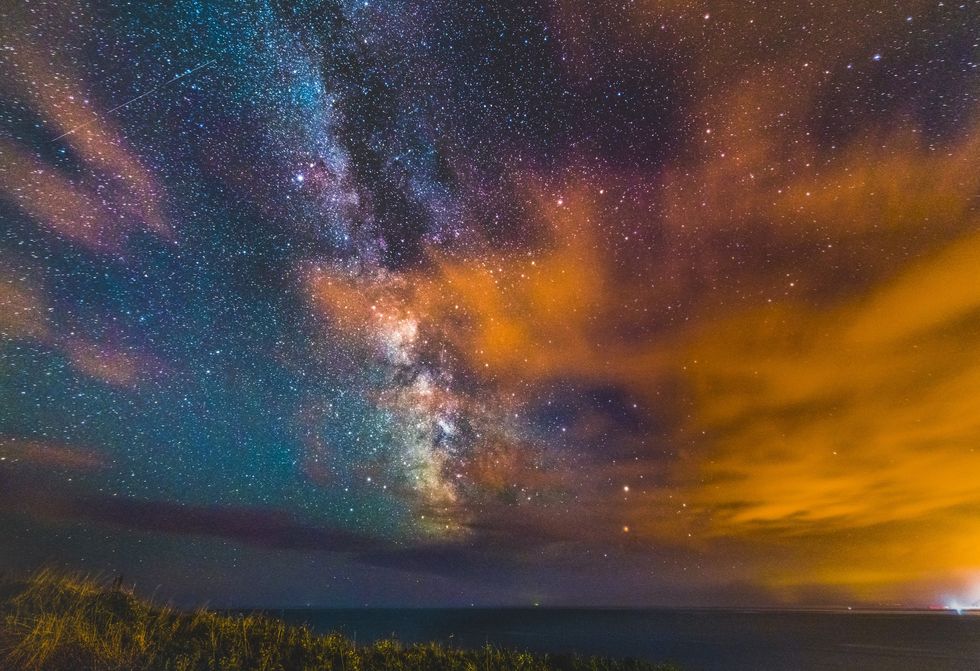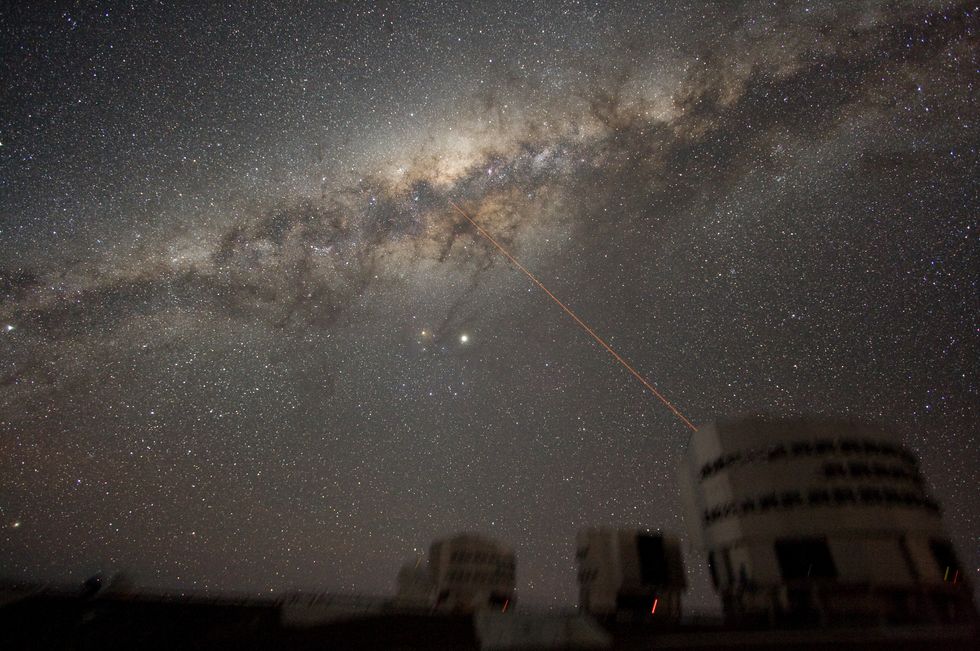Milky Way could escape HUGE collision with nearby galaxy as crash predicted to send 'the sun flying'

Kosmos-482 Out-of-control spaceship crashes into Earth after over 50 years in space |
GB News
Scientists ran 100,000 simulations focusing on the movement of galaxies
Don't Miss
Most Read
The Milky Way now only has a two per cent chance of colliding with its nearest galaxy neighbour, according to new research from scientists.
New calculations have dramatically reduced the likelihood of the Milky Way and Andromeda galaxies merging within the next five billion years.
This marks a significant departure from earlier predictions that forecast an inevitable galactic crash within four billion years.
The new findings emerge from an extensive computational study that ran 100,000 simulations of the two galaxies' movements.

New research suggests the Milky Way now only has a two per cent chance of colliding with its nearest galaxy neighbour
| GettyThe research, published in Nature Astronomy, draws on the most recent observational data from Nasa's Hubble telescope and the European Space Agency's Gaia spacecraft.
Researchers included the gravitational effects of the Large Magellanic Cloud, a dwarf galaxy orbiting the Milky Way.
Dr Till Sawala of the University of Helsinki, who led the study, said: "Although its mass is only around 15 per cent of the Milky Way's, its gravitational pull directed perpendicular to the orbit with Andromeda perturbs the Milky Way's motion enough to significantly reduce the chance of a merger with the Andromeda galaxy."
The team's simulations utilised data from space telescopes to model various scenarios of galactic interaction.
LATEST DEVELOPMENTS
Previous Nasa research had painted a more dramatic picture of our cosmic future.
Astronomers had calculated that the two galaxies, currently approaching each other at roughly 62 miles per second, would inevitably collide within four billion years.
This merger was expected to reorganise our solar system dramatically.
While Earth would survive the encounter, the sun would be flung into an entirely different region of space, with stellar orbits throughout both galaxies being fundamentally altered.

Future refinements are already planned with the European Space Agency's Gaia telescope
| WIKIMEDIA COMMONSProfessor Carlos Frenk of Durham University: "Until now, we thought this was the fate that awaited our Milky Way galaxy.
"We now know that there is a very good chance that we may avoid that scary destiny."
Dr Sawala added: "While some earlier works had focused on the interaction between the Milky Way, Andromeda, and the Triangulum galaxy, we also include the effect of the Large Magellanic Cloud."
Future refinements are already planned, with the European Space Agency's Gaia telescope expected to provide more precise measurements of Andromeda's motion.










